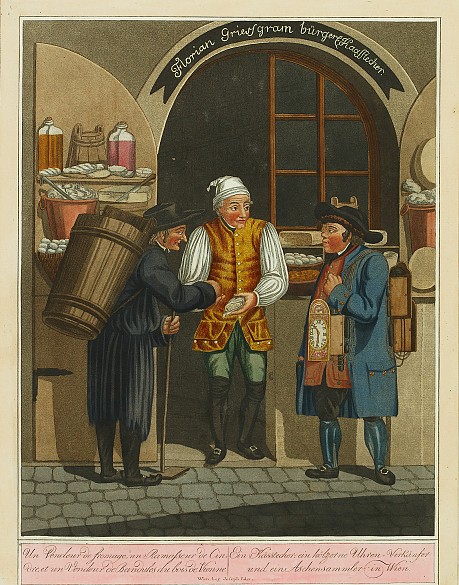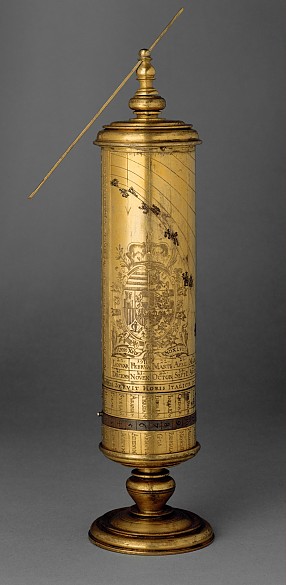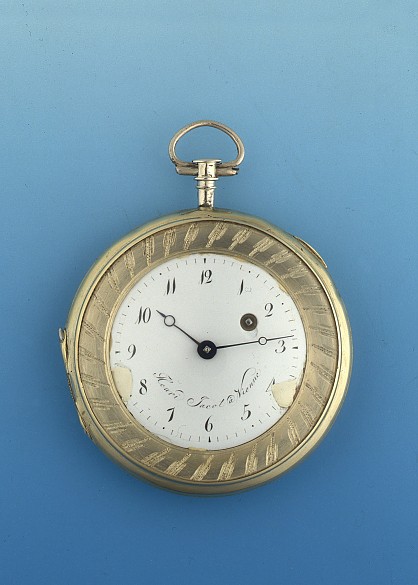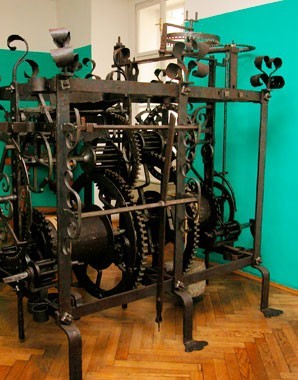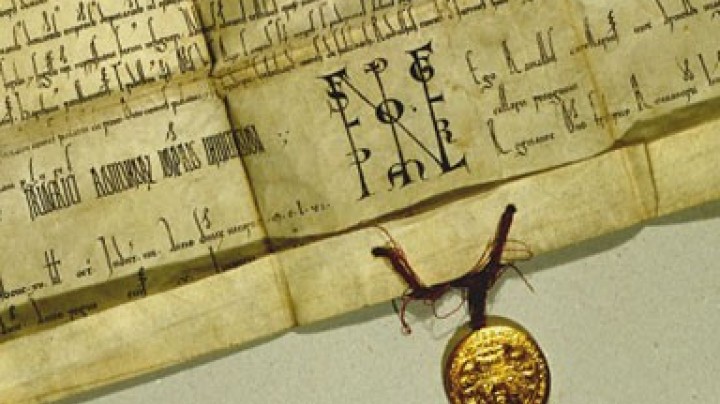Measuring time – Of large tower clocks and small pocket watches
Timepieces became smaller and smaller and showed the time ever more accurately. Admittedly, it was not unusual for them to be several minutes fast or slow – something unimaginable for us today.
Even in antiquity people used timepieces. There were very large fixed sundials, which were placed in squares and on public buildings, and there were also small table or travelling sundials for individual use.
From the beginning of the fourteenth century mechanical clocks which were driven by cogwheels and an escapement spread throughout Europe. They were made by locksmiths and blacksmiths, and the first ones were to be found on the towers of public buildings such as churches and town halls. Because they only ran for between eight and twelve hours, they had to be wound up two or three times a day by an operator. In addition to the dials, which from the beginning of the fifteenth century showed the hours, the tower clocks were given more and more accessories, which, for example, enabled them to display astronomical data. Such complicated and expensive clocks were intended to show off the riches and prestige of the lords of large and wealthy towns. Clocks for domestic use, which spread from the fifteenth century, were usually placed on consoles; like the large tower clocks they were operated by weights and were equipped with elaborate and expensive additional functions such as horoscopes and calendars. Pocket watches, on the other hand, were driven by a spring mechanism. However, these, like small clocks that could be placed on tables and desks, were very expensive and thus could be afforded only by wealthy aristocrats and members of the upper classes.
Clockmakers tried to make more and more accurate clocks, so that it became usual for them to have not just a hand to show the hours but also one to show the minutes, while the dial was also marked to show intervals of five minutes. Until well into the eighteenth century tower clocks had only a single hand, which showed the full hour or the quarter-hour.
